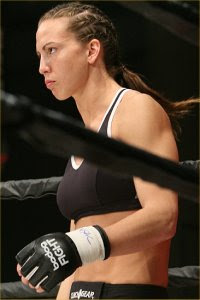My brain went on a rampage last night and I couldn’t sleep. I’ve become fixated on “rules.” Sorry for the digression on how to change the world. But this is related, so I appreciate your indulgence.
One of my favorite sayings is “Every system is perfectly designed to achieve the results it gets.” This is indisputably true, and a testimony to the power of rules. If you have a rule that liability for oil spills is capped at $75 million (which is so ludicrous I had to verify that it is millions, not billions; ha ha,
now the senators want to raise it to
$10 billion ), no one should be surprised that safety will get short shrift when the daily cost of overruns is $1 million (as reported by the
Wall Street Journal/The Week).
Rolling Stone goes further to show how this calculation even extended to human lives. If you have a rule that the fine for oil spill is $4,300 a barrel, you can expect oil companies to lie about the amount of spillage, especially when it’s so hard to measure. And oh yeah—quick send in the chemical dispersants to make it even harder to measure!
Rules are important to an orderly functioning of society. If society is in a nice equilibrium and nothing needs to change, then the rules are probably fine too. But if the common good is no longer being served, the rules must be revamped.
Since the rules are deeply ingrained in culture and economic ways of life, they can be hard to recognize and nearly impossible to change. I once heard an advocate for the poor say that delivering aid directly through social service agencies, ridding the system of bureaucracy and red tape, was a bad idea because then social service agencies would have to complete with one another. Perfect example of a rule that is becoming ever so clear: the welfare of existing institutions trumps the needs of their constituents.
The heartache comes, I believe, because (most) people and institutions are well-intentioned and trying hard within the system of rules. If I’m in a boxing ring, I can play by all the rules and fight my heart out. However, the question I should ask myself when I get knocked out is not “Did I do my best?” but “What the hell was I doing in the boxing ring?”
Shortly after Medicare Part D passed, I heard a luncheon speaker relate the uphill battle of quickly enrolling hundreds of thousands of seniors for the new prescription meds benefit. She went on and on about all the challenges, and was rightfully proud of what her organization has accomplished. When she finished, a retiree stood to ask the first question. He said, “If I didn’t have diabetes before your speech, I think I have it now. I should be able to take my Medicare card to any pharmacy and get my prescription filled. Period.” The audience, stunned by the audacity of this truth, didn’t know whether to clap or gasp.
When education no longer keeps up with a global economy, the rules about how to educate, and what education is, no longer suffice. When demographics overwhelm our social insurance systems, like social security and Medicare, the rules have to change or these systems collapse. When the planet is warming at a pace to swallow whole islands, the rules about how to transport people have to change, or, we’ll just keep not adequately responding to one Deepwater Horizon after another. If food rules don’t change, as a society we’ll eat ourselves into impoverishment.
Rules bind us like marionettes. Can we become uber conscious about what strings bind us, who's pulling them and why? When we see that the string is acting more like a ball and chain than a life line, can we take a deep breath and sever it? On second thought, maybe we are borg-like (see last post). We need to disconnect from a collective based on rote action and absence of conscientious choice, and start to create new rules based on individual choice and a collective conscious. Be a rule breaker!

****
After writing this, I thought of a good example of a rule so "hidden" it took research to uncover what was going on. It is well documented that elite soccer players have birthdays in the first half of the soccer year. For example, studies of players in the United Kingdom, Sweden, and Belgium found that approximately 70% of elite youth players had birthdays in the first half of the soccer year. After investigating any number of reasons this might be so, researchers found what is called the "relative age effect". At young ages, a 6 month differential can make a big difference in physical and mental maturity. These are the children selected for the more elite team play, and they receive better coaching and socialization. Higher self-confidence builds as well. These kids then get more attention. The whole thing becomes a self-fulfilling prophecy. The rule? Age-based team play.
















